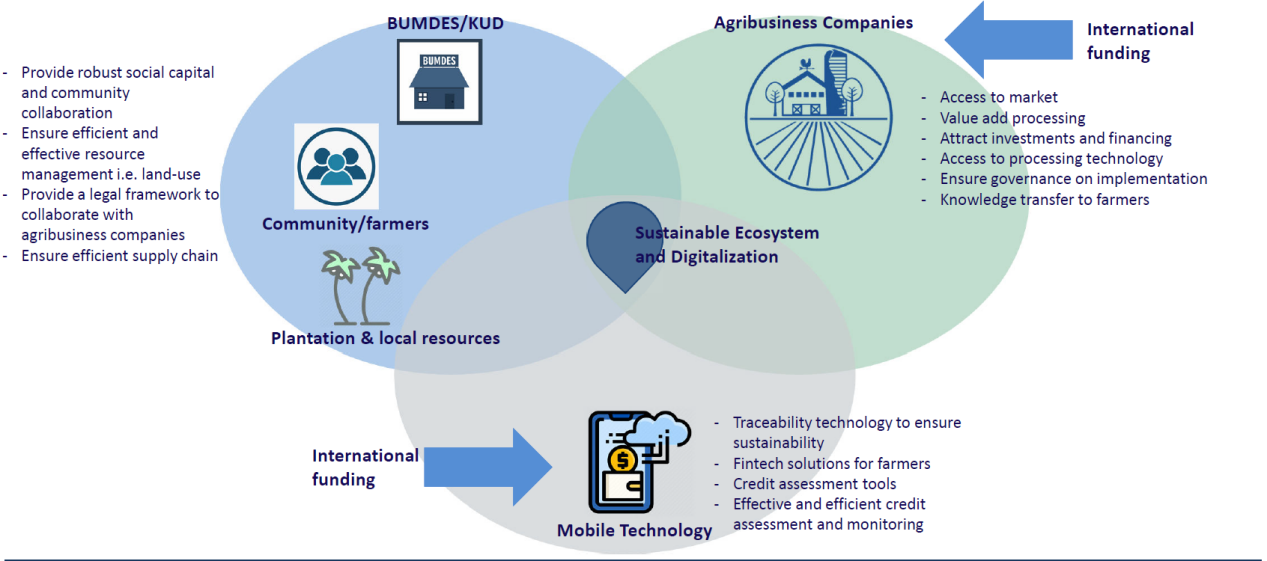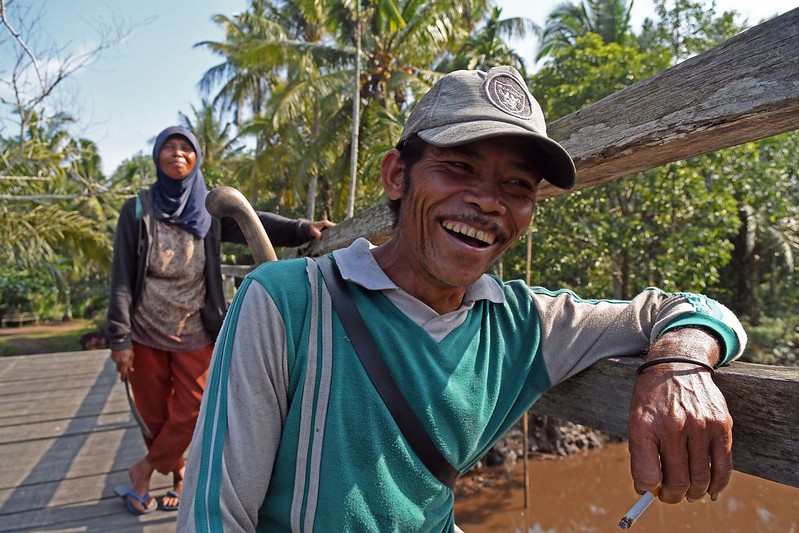UNEP, through the Tropical Landscape Finance Facility (TLFF) and UN-REDD, has been supporting TNP2K, a national poverty reduction program in Indonesia, to unlock the potential of the food sector to achieve national economic growth targets while also reducing emissions through green investment opportunities in rural economies. TNP2K, the National Team for the Acceleration of Poverty Reduction, is an Indonesian think tank with a mandate to oversee and coordinate policies for poverty reduction and social protection.
The Government of Indonesia is revitalizing the economy through village-owned companies called Bumdes. This policy is an integral part of their pandemic recovery response. Bumdes can play an important role in social forestry in Indonesian villages through processing non-forest timber products and sustainably harvested timber, adding value for communities. The Government of Indonesia has acknowledged TLFF’s work on the RLU deal, a joint venture between Indonesia’s Barito Pacific Group and France’s Michelin Group, and would like to learn more about UNEP's global initiative on land use finance.
The Government of Indonesia’s policies are part of its national development and pandemic recovery plans, with a target to reduce the poverty rate by 6.5% to 7% by 2024 while also reducing emissions by 2030. They aim to do this by increasing access to the added value generated in commodity value chains like rubber, palm oil, coffee and sago starch. However, targets have been accelerated to facilitate the recovery of the Indonesian economy post-pandemic, and these village-based companies have the potential to deliver equitable economic growth for communities dependent on forests and peat lands.
Through TLFF and REDD+ resources in social forestry, these village-based companies might now have access to a deforestation-free commodity supply chain with increased added value and the possibility of delivering REDD+ emission reductions for domestic and international carbon markets. To further examine these opportunities, four webinars were organized in 2020 to explore potential green funding opportunities for local entities in the food, agriculture and forestry sectors.
Other topics explored included: unlocking private investment potential for productive and sustainable models in the food sector; village economic business development policies and strategies to strengthen Bumdes institutions and circular agricultural models to support food security and access to green finance; and opportunities, regulations and green funding strategies to strengthen institutions and local businesses in the food and agriculture sectors.
Inequality in Indonesia has risen significantly since the late 1990s, threatening both economic growth and stability, with many forest-dependent smallholder households involved in illegal logging and forest encroachment. Key policies for tackling poverty and inequality are an investment in social and environmental protection. Indeed, there is strong international evidence that well-designed social protection can enable people to access the labor market and participate in income-generating activities, while also helping to generate higher economic growth.

As pictured in the above figure, various key challenges for Bumdes need to be addressed in order for them to achieve their full potential. Grant financing is necessary to establish the capacity to implement impact level investment. This involves feasibility studies and technology to trace commodity sourcing in terms of deforestation. As fund managers often have limited funding available to cover this resource-intensive stage, grant financing is critical here and will enable Bumdes to access impact financing to strengthen the livelihoods of communities.
The result of the four webinars has resulted in policy recommendations presented to the Vice President of Indonesia. Among them is the recommendation to develop associations at the jurisdictional level to generate impact at scale and to build capacity to include green economy recovery elements.
Bumdes can play a strategic role in promoting equitable development by increasing the access of marginalized forest-dependent communities in the added value of commodity value chains in forest and non-forest timber products. If sufficient capacity is established, these village-owned companies can be instrumental in ensuring products meet the requirement of global markets.
